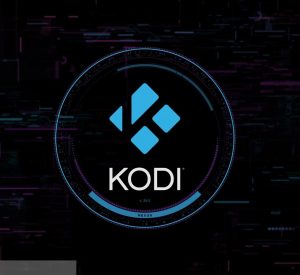AI must be explainable if it finds its way into the classroom
5 min readTable of Contents
Given the dynamic developments in the education sector, the introduction of artificial intelligence (AI) is changing the way students learn and teachers teach.
AI-powered tools promise personalized learning, inclusivity and data-driven insights. But at the same time they also bring with them an urgent need: transparency, accountability and ethical considerations.
Below we describe how explainable AI holds the key to improving ethical education and promoting accountability and understanding in education.
AI in the education sector
Just as in other industries, AI is making an impact in education by addressing important challenges.
A major problem in the modern education system is the high proportion of unmotivated students caused by a rigid curriculum, a lack of individual attention, inflexible timetables and limited student autonomy.
AI offers a solution in the form of personalized learning experiences that adapt to individual needs using adaptive learning.
This could be used to tailor materials with the creation of personalized content and provide real-time support through interactive engagement. This is similar to having a personal tutor.
In addition to personalization, AI is also crucial for promoting inclusion in education.
With tools like this Presentation Translator which provides instant captions, helps people with language barriers or disabilities and ensures a diverse audience has access to education.
Additionally, AI streamlines administrative tasks like grading and admissions processes, freeing up educators valuable time to focus on their students.
Additionally, data-driven insights provide teachers with invaluable resources to improve their teaching practices, ultimately increasing the attractiveness and efficiency of education.
Ethical questions and obligations
The rapid integration of AI into education presents a number of ethical challenges that require our attention.
These aspects include the bias (or bias) of algorithms, privacy concerns, and the need to ensure equal access to AI-powered educational tools, regardless of students’ backgrounds.
Ethical learning is not just an optional consideration, it is an absolute must. The potential for AI to inadvertently promote bias, violate privacy, or favor certain groups of students underscores the important role of responsible AI development.
Ethical learning must be a fundamental principle that guides the entire process from the development and deployment of AI systems to their daily use in education.
It is the linchpin that ensures that AI in education adheres to ethical standards, respects individual rights, and creates an inclusive and fair learning environment for all.
What is Explainable AI?
The goal of Explainable AI (XAI) is to improve AI transparency by clearly explaining their decisions.
Unlike traditional black box AI, XAI strives for transparency, interpretability and accountability, which are essential for trust, ethics and human understanding of AI processes.
Transparency is about AI should be as clear as a transparent window so that we can understand its decisions.
Interpretability means that AI’s actions are like a well-written book that is easy for us to read and understand.
Accountability means that AI takes responsibility for its actions, just like humans do for their decisions.
In education, XAI ensures that AI-driven systems pursue these goals just like a teacher providing answers and teaching you the problem-solving process.
This can promote trust in AI technologies and enable a deeper understanding of their role and decisions.
More accountability with XAI
One of XAI’s notable strengths lies in its ability to Detecting and correcting biases in learning algorithms.
Sometimes AI systems unintentionally retain biases from their training data. Through its transparency, XAI uncovers these prejudices and makes them visible and changeable.
Think of XAI as a responsible teacher who is open about its evaluation criteria and leaves no room for ambiguity.
Educational institutions operate according to certain standards and regulations to ensure quality and fairness. XAI acts as a compliance officer and guarantees that AI-powered tools meet these standards.
In this context, one can think of XAI as a set of rules that AI must follow in order to create a level playing field for all learners.
Promoting understanding through XAI
XAI is like an interpreter in the world of AI. The technology makes complex AI-driven recommendations and decisions understandable to students and educators.
It takes the obscure language of algorithms and translates it into a simple form.
What if a student received a recommendation on how to cover a specific topic? Without XAI, it might feel like a random suggestion.
But with XAI it’s like having a personal tutor explaining: “You’re getting this recommendation because your recent test results show that you need more practice in this area.“
Ethical learning and XAI
XAI is not just about understanding AI, but also about ensuring ethical learning practices in AI-powered education.
When developing AI applications for education, XAI can highlight potential ethical issues, such as: B. on the bias of algorithms.
Think of the system as a warning system that says: “This AI tool could favor certain groups. We should eliminate these biases to ensure fairness for all students.“
The optimization of AI models using XAI feedback occurs iteratively, like a feedback loop. XAI continually evaluates AI systems and identifies any deviations from ethical guidelines.
As soon as a problem is detected, AI signals like a quality inspector: “We’ve found a problem here that we need to fix.“ This iterative process ensures that AI adapts more and more to ethical standards over time.
Let’s take a practical example. Imagine if an AI-powered language learning app unintentionally introduces gender bias into its vocabulary recommendations.
XAI identifies these biases and recommends changes to ensure the app promotes inclusive language learning.
In this way, you have a kind of ethical guardian who ensures that the AI system is in line with the values of education.
The role of XAI in ethical learning is central. She identifies ethical concerns and guides continuous improvement of AI programs to create an ethical educational environment.
Conclusion
XAI is essential for ethical education in the age of AI. Their job is to ensure transparency, eliminate biases and interpret AI decisions to better understand them.
XAI acts as an ethical watchdog, continually refining AI systems to align them with educational values, making them essential to education.
Crypto exchanges with the lowest fees 2023






